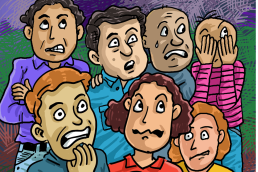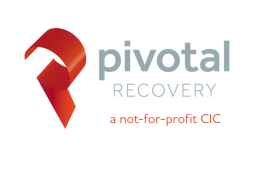We are delighted to host John Carr OBE with a guest post in the battle of child protection versus privacy. He joins us to discuss the latest breakthrough in age verification for pornography legislation. This is the latest blog from John’s Technology Explained website, Desiderata, detailing among other things, each faltering step of the Online Safety Bill. The public arguments have been formed around child privacy versus privacy. See below for what this latest development means for each camp.
“It has been a long hard road
At quarter-to-five this afternoon the Online Safety Bill (OSB) finished its journey through Parliament. When Royal Assent is given the Bill will become “The Online Safety Act 2023” and therefore law. Will that be later today? Tomorrow? Nobody seems to know but it will be soon.
In its breadth and ambition the OSB is a global first and allows the UK to reclaim its position as a leader in online child protection. For several years the leadership club was small and exclusive and we could plausibly claim to be in the vanguard, but we dropped the ball. Time was lost. Children paid for it. No point dwelling on all that now.
Mind you, we should never forget what happened with Part 3 of the Digital Economy Act 2017. It received Royal Assent and became law, the then Regulator even drew up the necessary, detailed operational guidelines, presented them to Parliament for approval, got that approval, everything and everyone was ready to go but it all came to nought because the Boris Johnson Government refused to name a commencement date for the laws to take effect.
I do not think there is any serious risk of that being repeated but as with all these things…… there can be many a slip twixt cup and lip.
Huge challenges lie ahead
Huge challenges like ahead. In a number of respects – not all – we are most definitely in uncharted waters. However, we are not, as one academic disdainfully put it
trying to build the airplane while we are flying in it
We know the dangers, but we refuse to remain immobile, Earthbound, waiting for the benediction of that bevy of old-school techno aristocrats who have never given a thought or an apparent fig for online child safety until it appears to trespass on territory which they think they own. Then they are capable of moving rapidly to distribute a multiplicity of alibis for inaction wrapped inside pious words. Silicon Valley and the ghost of John Perry Barlow stand silently by, applauding, urging them on.
Invoking their “right” to innovate, businesses and nerds can try stuff and let it loose on the internet any time they like. All that’s needed is the inclination and the money yet, seemingly, the rest of us are not allowed to make a move until the possibility of error and unintended consequences have been completely eliminated.
Cross-party support
The fact that the main elements of the OSB enjoyed enormous support among the main parties in both Houses of the UK Parliament has been and will continue to be extremely important.
There are several sections of the Bill deserving particular praise and I will do a short summary in my next blog. However, in this blog I want to focus on one particular aspect. Sexual material which appears to be legal, is not intended for children, but which nevertheless is now and for a long time has been easily accessed by children.
Pornography
Just to be clear: when we talk about online pornography we are no longer talking about Playboy centrefolds or videos of ladies without bras dancing on a beach. A great deal of modern porn portrays what can only be described as anti-female violence. Typically it represents sex in a wholly artificial way, through a distorted lens, acting as a malign influence on young people’s understanding of body image and how to behave when engaging in sexual activity.
Thanks to work by the likes of Gail Dines, we also now see the porn industry for what it truly is. Cruel and exploitative, a destroyer of lives. Never the career of first choice for anyone. An eternal source of regret for those who did engage, often when they had a drug habit, were in desperate financial straits, being bullied by a pimp, had suffered childhood trauma, maybe all of the above.
This ‘new-fangled thing’
In the early to mid 1990s the easy availability of pornography over this “new-fangled thing” we now call the internet was one of the first intimations that the emerging technology came with surprises. No boffins stepped forward then to talk about keeping airplanes glued to runways.
From the very start of the internet age UK children’s groups saw restricting children’s access to pornography as a major concern. We never said porn should be banned or that porn should not exist. We stuck to a very specific, child protection line. If porn was going to be available it should only be so under arrangements which as closely as possible reflected the kind of restrictions that exist in the offline world.
It was round about then that the phrase “age verification” started to be used. We had some early success with the mobile phone networks.
Mobile phones went first
From about 2001 onwards, with the arrival of 3G networks, fast access to the internet via mobile devices became a reality. You no longer had to wait half an hour for a small, greyscale, highly pixilated image to appear on your tiny, greenish screen. The smartphone revolution was underway. Screens got bigger and multicoloured. Sound got richer. The internet was now in children’s pockets and satchels. That meant porn was. The children’s charities sought and were granted an audience with mobile phone industry leaders.
In 2004, the Mobile Broadband Group agreed a Code of Practice which would, by default, limit access to pornographic and other adult content and services, at least until the mobile phone user had been through a process to confirm they were over 18. The Code of Practice was negotiated and agreed directly between the children’s charities and the networks although having civil servants hovering in the wings no doubt helped concentrate the minds of the companies. The Government was never asked to endorse the Code but they repeatedly acknowledged its existence. With approval.
Fate intervenes
In 2003, while we were in discussions with the mobile companies about the Code, the Blair Government announced a review of gambling policy. This broadly coincided with banks starting to give debit cards to children as young as 11. When, aged 11, our kids went to “big school” we opened bank accounts for them with a major High Street bank. As part of the package – without asking- they were given debit cards (Solo cards).
The children’s organizations soon learned that a number of children were being diagnosed as “gambling addicts” because, using their debit cards, they had been able to open and operate accounts with gambling web sites.
The gambling industry assured us they were aware of the problem and took it “very seriously”. Actually the great majority of online gambling web sites did nothing until the Gambling Act 2005 made age verification a requirement. This was the first time anywhere in the world robust age verification had been made a legal requirement in respect of any product or service provided over the internet. Children could no longer just tick a box and say they were 18 before proceeding into forbidden territory.
Capitalism did its magic and an age verification industry started to form.
David Cameron moved it all up a notch
I am not intending here to write a comprehensive history of the way online policy towards children began to change when a new Government took over following the 2010 General Election. But there is no doubting David Cameron’s personal committment to the issue. Witness his early appointment of Reg Bailey. Not long after that he provided substantial seed-funding for what eventually became the WeProtect Global Alliance.
Sensing how the wind was blowing, on a voluntary basis UK ISPs quickly moved to offer comprehensive filtering packages to all their domestic broadband users. Some of these filtering packages were turned on by default. Following a public fight between the children’s charities and Starbucks, the Government helped fund a scheme to encourage providers of WiFi in open spaces to restrict access to porn. After all, there was little point denying children access to porn on mobile devices if, using WiFi freely available in shopping malls or what have you, the filters could be sidestepped very easily and quickly. The kids would think we were not serious. And they’d be right.
The Gambling Act 2005 and the mobile phone code had strengthened our hand. We could now point to age verification working at scale, using the same legal age that should be applied to pornography, namely 18. But there was still a glaring gap. The wider reaches of the internet.
Cometh the hour cometh the woman
The children’s groups kept up the pressure and in the 2010 Parliament we found a doughty champion in the form of Claire Perry, then a Conservative MP, part of the Cameron-Osborne circle. Perry, a feminist, had a keen understanding of politics. Appreciating the headwinds she would face, Perry organized a cross-party group of Parliamentarians. They took evidence on the effects of pornography on children and how these might be addressed. The cross-party group produced a report which led directly to a 2015 General Election pledge in the Conservative Manifesto. The Conservatives promised to introduce age verification for porn sites. They won the election outright. The rest, as they say, is history.
It is too painful for me to write about the shenanigans leading up to the adoption and later abandonment of Part 3 of the Digital Economy Act 2017 or the judicial review that followed. No point raking over it. Suffice to say the OSB finally delivers on that 2015 Conservative promise but, as mentioned earlier, particularly in respect of its provisions on pornography, along the way it has picked up substantial political support among all the major parties in Westminster.
Universal requirement
Age verification for pornography sites which publish into the UK is now a universal requirement and it also impacts social media services which allow access to porn.
Aside from Claire Perry a great many Parliamentarians and groups inside and outside Westminster were responsible for getting us to where we now are, particularly in the House of Lords. Baroness Benjamin and the late Baroness Howe deserve special mention. I would list all of the others but if I tried I would accidentally miss somebody out, thereby offending them, so I won’t. People on the inside track know who they are and people not on the inside track probably aren’t all that interested anyway.
Is the Bill perfect?
Is the Bill perfect? Unlikely. Will mistakes be made in implementing the new laws? It would be surprising if there weren’t. The responsibility resting on the Regulator’s shoulders is huge. A million pair of eyes are watching. All over the world. And a million pair of hands stand ready to help.
Nevertheless it is great to be able to say a campaign that started in 2001 is over. Yes, we will need to remain vigilant to ensure the law is properly enforced but that is an altogether different task from that which we have faced hitherto. Porn has no place in children’s lives. I very much hope other countries will see things the same way and adopt a similar policy. I will do all I can to persuade them.”




